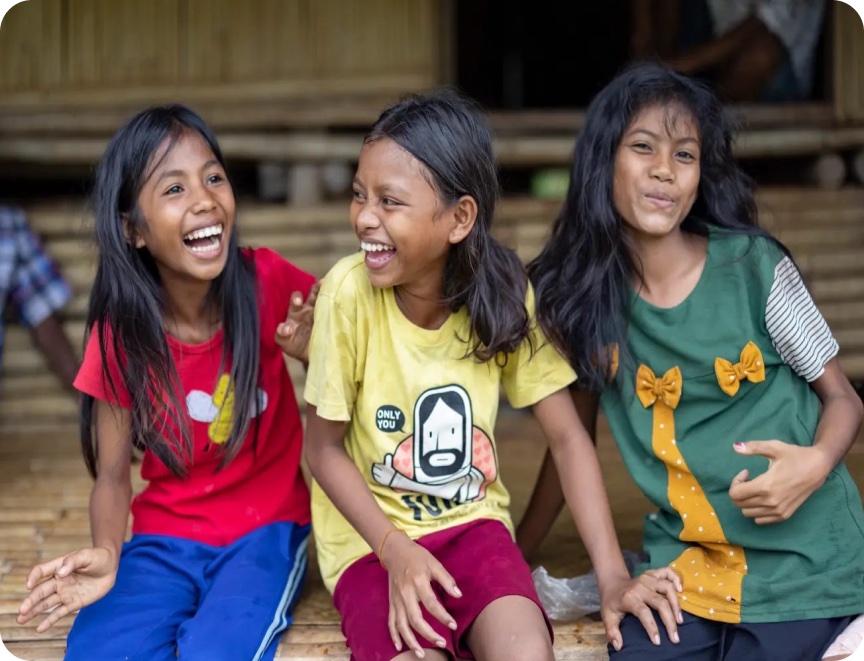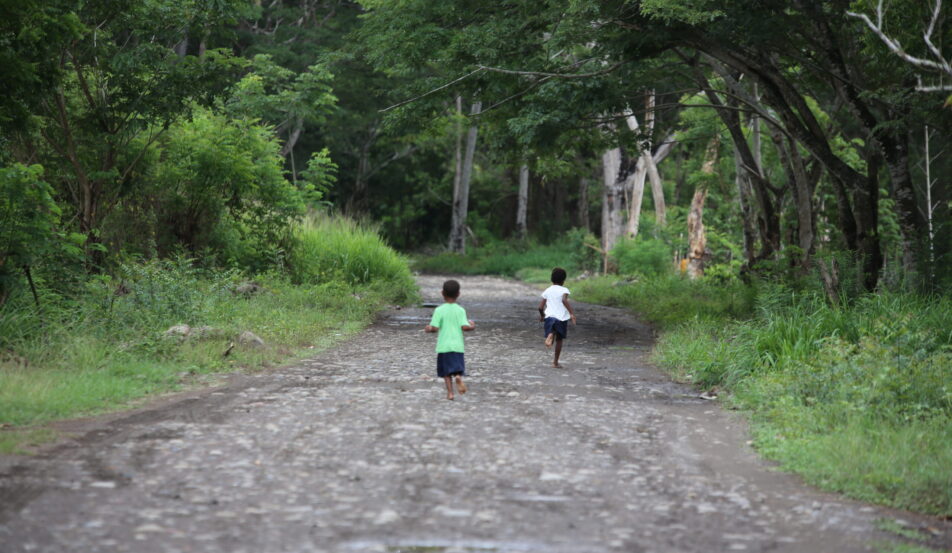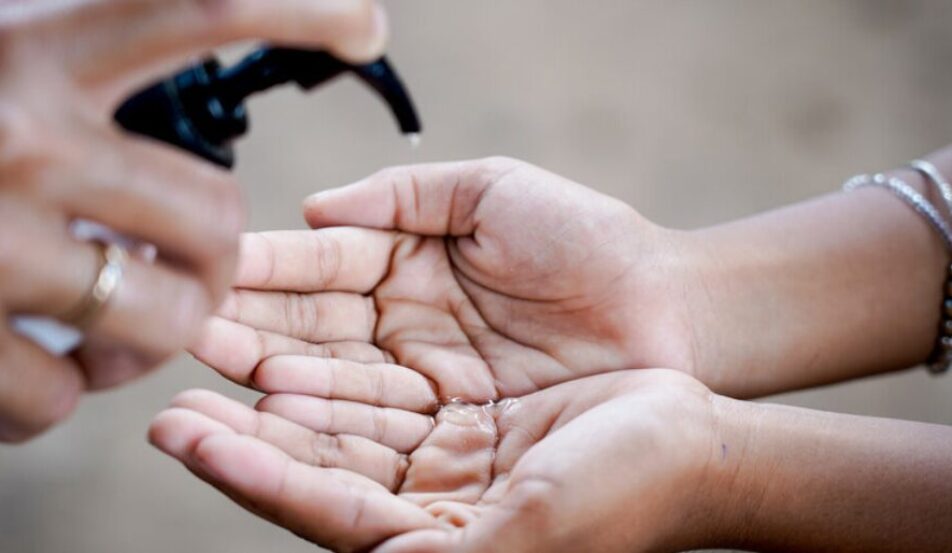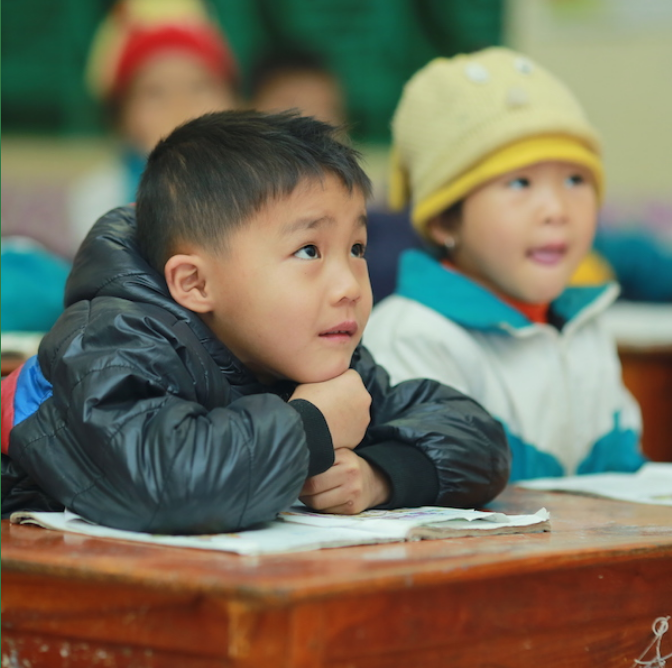ChildFund Vietnam is bringing positive change to children with disability in remote areas
Ly Thi Ngoc Bich, a fourth-grade student in Cao Bang Province in Vietnam, was born with congenital nystagmus, meaning she has weak eyesight. Reading is difficult for her, even when she leans in close. But since participating in ChildFund Vietnam’s My Right to Education project, Bich has experienced many positive improvements in her daily life and her personal development.
Bich’s mother, Nguyen Thi Dien, discovered her eyesight was impaired when she was seven months old. Because Bich was so young and the family struggled financially, they didn’t receive a diagnosis until she was 18 months old. By the time she was four, the doctors said that her condition was incurable.
“When Bich first went to school, her classmates didn’t know she had a disability and bullied her. I felt sorry for her, but I still wanted her to go to school,” said Dien.
Improving the quality of inclusive education for children with disability is one of the main goals of the My Right to Education project.
While struggling to go through the application process to receive disability benefits, Dien was introduced to the project. Dien and her daughter took part in many activities including training on loans programs for families with a child with a disability, childcare training and training on the legal policies and rights of children with disability.
After taking part in the program, Bich was happier, more sociable, and more confident. Her classmates now understand her disability and no longer tease her. Now they happily play together.

“She would come home from school and tell me this friend doesn’t tease me anymore, this friend now hangs out with me. When I see her like that, I also feel happy and thankful for ChildFund’s project,” said Dien.
Before taking part in the project, Bich often had to rely on her mother for help. Sometimes her mother was busy and couldn’t support her right away. Now she is more independent and can brush her teeth, wash her face, change her own clothes, and wash her own hair.
“I want Bich to finish her education, then find a suitable job. Later, when us parents are old and can’t take care of her like this anymore, I want her to be able to take care of herself. I also want the project to be further implemented in other districts so other children with disability like my daughter will be supported,” said Dien.
Bich and her mother are excited to soon receive a laptop from the project. The project funds 60% of the costs and her family will pay the rest. Bich’s teachers will help her learn to type and when her eyesight gets weaker, she will use special software for people with visual impairments that will read out onscreen text aloud.
Nong Thi Bay, Bich’s homeroom teacher said: “Bich’s vision is very limited. She can barely see anything on the board. Every time she wants to write, she must lean closely at the notebook. Knowing this, I often come closer to read to her. I also arranged for high-performing classmates to sit next to her and help her. Before ChildFund’s project, as a teacher, my methods in teaching children with disability were limited.”
Nong Thi Bay hopes that the project will continue to support students in remote areas, especially students with disability, to give them the same opportunity to go to school as their peers.
“After participating in the project, we were trained and equipped with knowledge to build lesson plans suitable for students with disability. For Bich, I would assign appropriate exercises and choose the right notebooks for her. Bich has made many improvements. She became bolder and more confident in daily communication. She also absorbs knowledge better.”
Since its inception in September 2019, ChildFund’s ‘My Right to Education’ project has been implemented in the Bac Kan and Cao Bang Provinces.

































